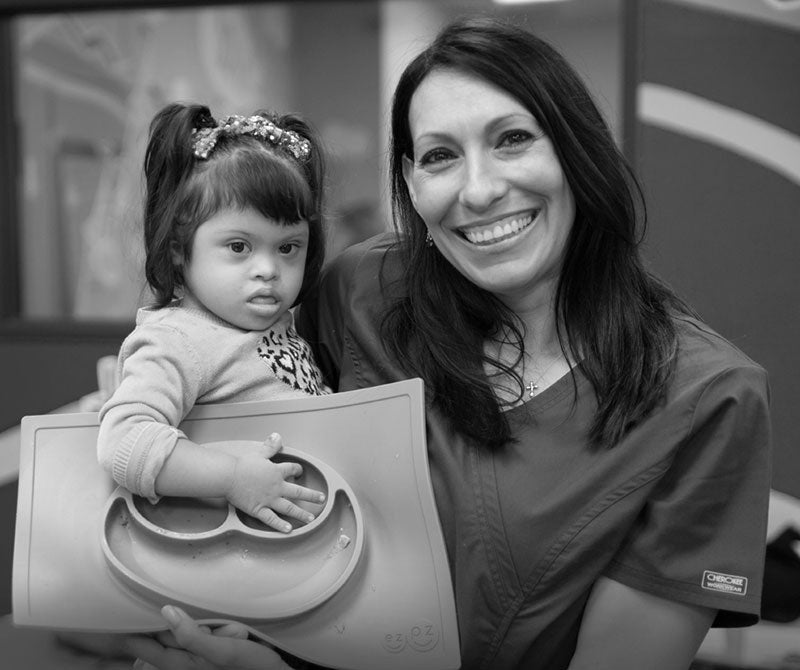Tips to Help Toddlers that Struggle with Pocketing
One of the feeding concerns parents have with their toddlers (and older kids) is the danger of pocketing. Food pocketing occurs when a child holds leftover food in their mouth that they were unable to swallow. The pocketed food can be whole pieces of food or food that has been partially chewed or even well chewed. Pocketing is not a delay in chewing skills, it is a delay in swallowing skills. Here are a few ideas to help if your toddler struggles with pocketing.
Pocketing Risk: Pocketing can pose a choking risk because food is held in ‘pockets’ of the mouth (cheeks, gums, tongue, palate and lips) can become dislodged during:
- Playing
- Sleeping
- Riding in a car seat
- Tooth brushing
- Talking
- Roughhousing or running
- Laughing
Pocketing can occur at any stage of life, from infancy through adulthood. If you have a baby (6-12 months) with pocketing issues, head to my blog: Tips to Help Babies Overcome Pocketing.
Drink from an Open Cup: One way to help a toddler learn to ‘feel’ the pocketed food in their mouth is to have them drink from an open cup (a cup without a lid, so no Sippy cups). Drinking from an open cup floods the oral cavity, making it easier to swallow food that was hiding in the palate, tongue and gum line.
- Milestones: Drinking from an open cup is an important swallowing milestone for toddlers and can also help decrease the occurrence of pocketing. At 12 months, they should be able to drink from an open cup with minimal spillage, and by 36 months they should drink with no spillage. These skills can encourage them to take sips more often during mealtime and increase their sensory awareness of the food in their mouth.
Drink from a Straw Cup: Another way to help decrease pocketing is to encourage sips from a straw. Having a toddler drink from a straw cup will encourage lip rounding and cheek activation, which propels liquids to the back of the mouth. Using a straw will help kids clear pocketed material from their lips and cheeks.
-
Milestones: Drinking from a straw is a developmental milestone for 9-15 month olds. Looking for the perfect toddler cup and straw? Try our Mini Cup + Straw Training System. It’s the safest product on the market because of the straw drinking safety features.
Use a Utensil: Serving meals that require your toddler to use utensils can be an easy way to slow them down at mealtime. A slower pace means they can concentrate on the sensations in their mouth. For example, serving yogurt, pasta and mixed vegetables may encourage your tot to alternate between a spoon and a fork. This can provide input to their sensory system, help expel the pocketed food and elicit a stronger swallow.
- Milestones: Learning to scoop with a spoon is an important 12-24 month old developmental milestone. And once your toddler is successful with spoon scooping you can introduce a fork. The ezpz Mini Utensils have sensory bumps along the fork and spoon bowl to help increase tactile sensations, which may reduce pocketing.
Take a CPR Course: I’m sure you took a CPR course when your little one was a newborn, which might have been years ago! In my feeding courses I recommend parents take a CPR course twice in baby’s first year (once before the baby is 6 months / starting solids and again before baby’s first birthday), then a refresher course every year until the child is 5 years old. This life saving education will help you (and any other caregivers) have an action plan if any pocketed food becomes dislodged.
Food pocketing can be a sign of a swallowing disorder, and feeding therapy may be helpful in overcoming this challenge. Knowing the pocketing risks and implementing these feeding tips can make mealtime safer and more enjoyable for you and the entire family. For more tips, techniques and teaching, head to our blog!
Dawn Winkelmann, M.S, CCC-SLP
SPEECH LANGUAGE PATHOLOGIST & FEEDING SPECIALIST FOR EZPZ
Dawn Winkelmann, a.k.a “Ms. Dawn”, has treated thousands of kids across the globe by helping families overcome picky eating stages and food refusals, while adding new foods into their diet. Her high success rate is attributed to Ms. Dawn bringing her education, experience, sense of humor and her favorite feeding products to the family dinner table.
You will find Ms. Dawn’s expert feeding advice to be positive and fun for the entire family! She adapts complicated feeding/swallowing research and makes it practical and easy for parents! Get ready to learn the science behind your favorite feeding products and ways to bring happy family mealtimes back!



